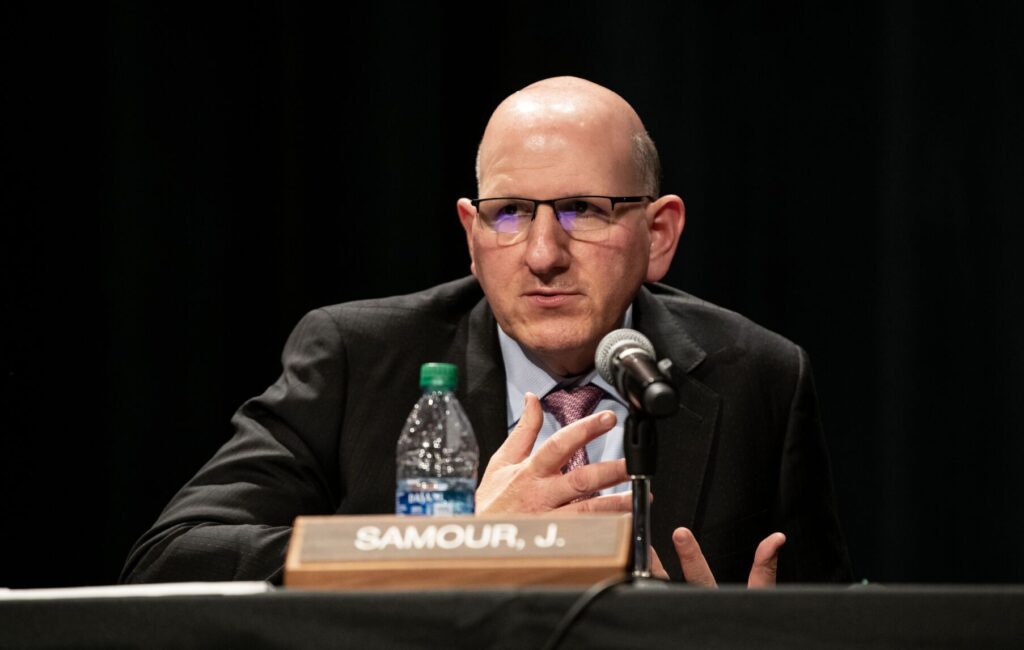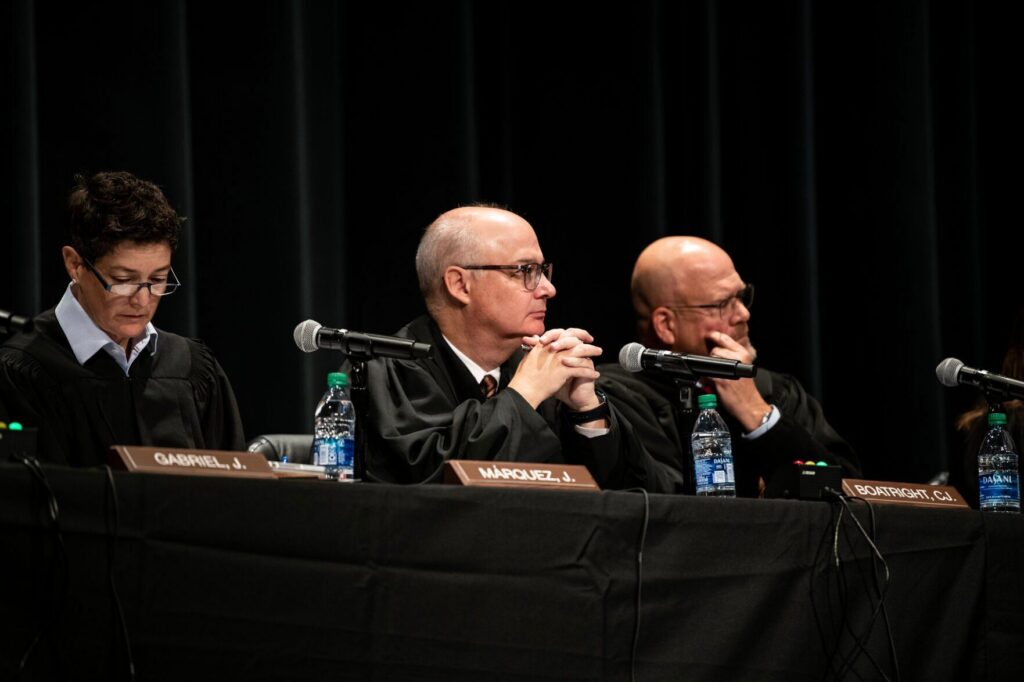Federal judge green-lights some claims for trial in death of Montezuma County jail detainee
A federal judge on Friday ended some claims and permitted others to proceed to a jury trial over the 2021 death of a severely intoxicated man in the Montezuma County jail.
Surviving family members of Kelroy Newman filed suit against the county, its elected sheriff, a deputy, the hospital where Newman was seen and his treating physician, alleging they violated his rights under state and federal law in the lead-up to his death. The defendants moved to end some or all of the claims in their favor without a trial.
In a trio of March 28 orders, U.S. District Court Chief Judge Philip A. Brimmer narrowed the number of claims that would proceed against each defendant based on the evidence. An eight-day jury trial is scheduled for February 2026.
A Cortez police officer arrested Newman on July 17, 2021. At the Montezuma County Detention Center, he registered a blood alcohol level of 0.421. Pursuant to the jail’s policy, the arresting officer took Newman to nearby Southwest Memorial Hospital for clearance. Randy Gene Davidson was the physician who examined and cleared Newman for admission to the jail after noting no signs of distress.
Once at the jail, deputies checked on Newman intermittently over the morning hours on July 18, but seemingly not every 30 minutes as policy required. Newman complained of a headache to Deputy Zachary Summers, who then spoke to his supervisor. The two agreed Newman could go back to the hospital during a shift change. To Summers, Newman did not appear seriously ill.
Before noon, Summers found Newman unresponsive. An ambulance came for Newman and took him back to Southwest, where he was pronounced dead. The cause of death was liver cirrhosis and severe fatty metamorphosis.
The doctor
Against Davidson, the plaintiffs alleged he was deliberately indifferent to Newman’s serious medical needs in violation of Newman’s constitutional rights, and also that the doctor was negligent. Davidson moved to end the constitutional claim, arguing he was not acting at the behest of the government when he saw Newman.
“At best, this case is an alleged matter of negligence only,” wrote his attorneys.
Brimmer ticked through a list of factors courts consider when determining if a doctor is acting on behalf of the state. He noted Newman’s visit to Southwest was “part of a screening system to prevent more highly intoxicated detainees from being booked into the jail.” However, Brimmer ultimately agreed Davidson’s treatment of Newman did not render him a governmental actor.
“Most courts that have addressed cases involving a detainee’s treatment at the emergency room have held that a doctor does not become a state actor by treating a prisoner at an emergency room,” he wrote.
Southwest Memorial Hospital
Brimmer applied the same logic to the hospital itself, finding it did not violate Newman’s constitutional rights as a government actor.
The plaintiffs also contended the hospital violated the federal Emergency Medical Treatment and Labor Act (EMTALA), a 1986 law to prevent facilities from “dumping” uninsured patients onto other hospitals without stabilizing them first. The question was whether Southwest provided Newman an “appropriate medical screening evaluation” before discharging him to the jail.
Brimmer concluded there was insufficient evidence to rule for the hospital as a matter of law, and he permitted the EMTALA claim to proceed to trial.
The county
Considering whether Summers inflicted cruel and unusual punishment under Colorado’s constitution, Brimmer looked to whether the deputy knew about Newman’s serious medical needs and disregarded the risk. Brimmer could not conclude the combination of Newman’s self-reported headache and his previous intoxication put Summers on notice of a serious problem.
“The Court therefore finds that Mr. Newman’s symptoms, as seen or known by Deputy Summers, would not suggest an ‘obvious’ risk to a reasonable person,” he wrote.
As for the sheriff and the county itself, Brimmer concluded there was only one similar death at the Montezuma County jail in 2013. That fatality alone would not have made the government aware that the jail’s policies or practices would likely result in a constitutional violation for detainees like Newman. Because jail protocol involved taking severely intoxicated detainees to Southwest for a screening, it was unclear “why county officials would know to a moral certainty,” he wrote, “that officials needed to provide additional training or staffing.”
However, because the county inadequately argued why it should prevail on the plaintiffs’ negligence claim, Brimmer allowed that portion to proceed.
“Kelroy Newman should be alive today,” said Anna Holland Edwards, one of the plaintiffs’ attorneys. “Contrary to the court’s ruling, we strongly believe that the treatment he received at the jail and the hospital violated his constitutional rights and was caused by unconstitutional and reckless policies.”
The case is Estate of Newman et al. v. Board of County Commissioners et al.













